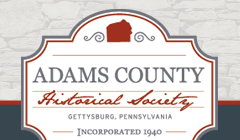Document Type
Article
Abstract
The earliest European settlers in today's Adams county were basically a religious people. While probably most of them should not be described as particularly pious, they did have the fear of the Lord in their hearts and wanted to have access to the services of some religious organization, either the one to which they were accustomed in Europe or one with which they had affiliated in America. If they belonged to groups such as the Quakers, Mennonites, or Brethren, it was easy for them to develop internally the leadership necessary to function successfully as a religious community. If they were Roman Catholics, Presbyterians, Anglicans, Lutherans, or Reformed, at least they hoped to be able to rely upon a learned and properly ordained clergy to preach, administer the sacraments, and perform other duties which they had come to expect of their religious leaders.
Once in Pennsylvania, laymen of all but the most recently formed religious bodies encountered something new to their experience. There simply were no long-existing church buildings, schools, or religious authorities. In a province which imposed very few restrictions on one's religious freedom, there were also no laws either permitting or requiring the provincial government to expend money for church and school buildings or to secure and support ministers. This meant that if the early settlers in Adams county wanted to have churches and schools, they would need to rely on private efforts to secure them. Since there continued to be a severe shortage of learned and properly ordained clergymen in Pennsylvania long after the close of the colonial period, much of the responsibility for establishing religious institutions rested upon laymen, for whom this was a new and often difficult task. [excerpt]
Recommended Citation
Glatfelter, Charles H.
(1999)
"Some Early Adams County Communities, Their Churches, and Church Lands,"
Adams County History: Vol. 5, Article 3.
Available at:
https://cupola.gettysburg.edu/ach/vol5/iss1/3
Included in
Cultural History Commons, History of Christianity Commons, History of Religion Commons, United States History Commons
